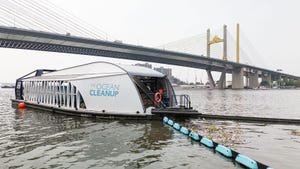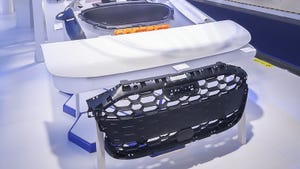Reshoring, foreign direct investment added more than 171,000 U.S. manufacturing jobs in 2017
Since 2010, more than 576,000 manufacturing jobs have been reshored to the United States, according to a new report from the Reshoring Initiative.
April 12, 2018

 A combination of companies’ reshoring efforts and foreign direct investment (FDI) led to a surge in jobs in 2017, according to the latest report from the Reshoring Initiative. Last year, more than 171,000 manufacturing jobs were added to the U.S. workforce, up 2,800% from 2010. Including upward revisions of 67,000 jobs in prior years, the total number of manufacturing jobs reshored to the United States is over 576,000 since 2010. The 171,000 reshoring and FDI jobs announced equal 90% of the 189,000 total manufacturing jobs in 2017.
A combination of companies’ reshoring efforts and foreign direct investment (FDI) led to a surge in jobs in 2017, according to the latest report from the Reshoring Initiative. Last year, more than 171,000 manufacturing jobs were added to the U.S. workforce, up 2,800% from 2010. Including upward revisions of 67,000 jobs in prior years, the total number of manufacturing jobs reshored to the United States is over 576,000 since 2010. The 171,000 reshoring and FDI jobs announced equal 90% of the 189,000 total manufacturing jobs in 2017.
Combined reshoring and FDI jobs were up 122% compared to unrevised 2016 totals and 52% compared to revised 2016 totals, said the report. The Reshoring Initiative largely attributes the huge increases to anticipation of greater U.S. competitiveness due to expected corporate tax and regulatory cuts following the 2016 election. Similar to the previous few years, FDI continued to exceed reshoring in terms of total jobs added, but reshoring has closed most of the gap since 2015.
The Reshoring Initiative’s 2017 report includes cumulative data from 2010 through 2017, as well as projections for 2018. The numbers demonstrate that reshoring and FDI are major contributing factors to the country’s rebounding manufacturing sector.
“We publish this data annually to show companies that their peers are successfully reshoring and that they should reevaluate their sourcing and siting decisions,” said Harry Moser, founder and president of the Reshoring Initiative. “With three to four million manufacturing jobs still offshore, as measured by our $500 billion/year trade deficit, there is potential for much more growth. We call on the administration and Congress to enact policy changes to make the United States competitive again. Our Competitiveness Toolkit is available to help quantify the impact of policy alternatives, including a stronger skilled workforce, continued corporate tax and regulatory reductions as well as a lower U.S. dollar.”
The 2017 Reshoring Report contains some interesting facts: “Proximity to customers remained the leading factor driving reshoring and FDI in 2017, followed by image/branding such as ‘Made in USA,’ government incentives and ecosystem (supply chain) synergies.”
For the first time, Asia surpassed Western Europe in generating jobs by FDI, due mostly to increased investment by China and continued strong showings by Japan and Korea, the report noted.
In the United States, the Southeast and Texas remain the top regions for reshoring and FDI, with the Midwest gaining ground in second place due to its strong industrial base. Transportation equipment remained the strongest industry, accounting for nearly 36% of total jobs returned. Apparel and medical equipment saw the largest increases in industry ranking.
Reshoring has been increasing at a similar rate as FDI, indicating that U.S. headquartered companies are starting to understand the benefit of U.S. production that foreign companies have seen for the last few years. Preliminary 2018 data trends are at least as strong as 2017, concludes the Reshoring Initiative.
About the Author(s)
You May Also Like




